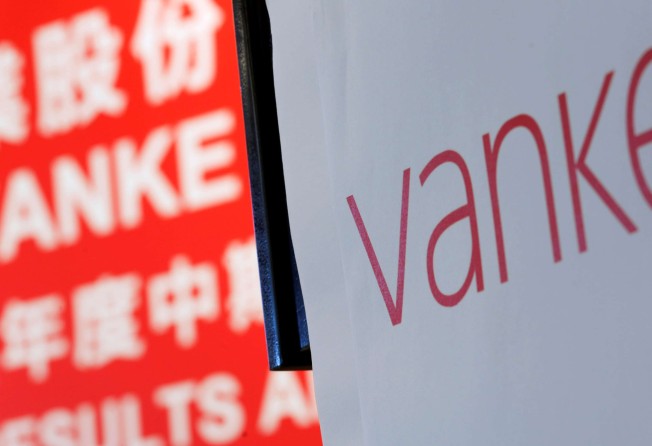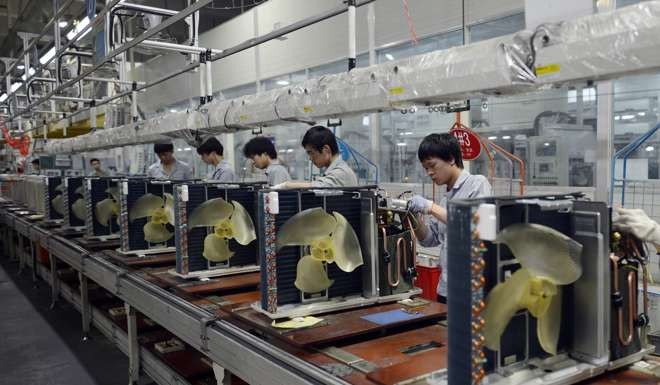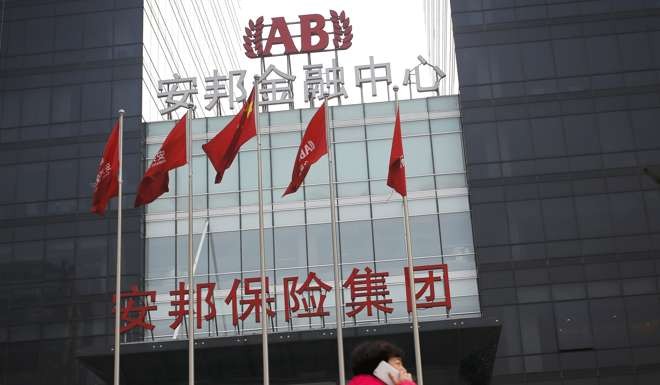Spreading boardroom battles could threaten real economic development, warn experts
Mid-tier firms with high returns on equity, high dividends, low valuations and dispersed shareholding structure are most likely targets

There are barbarians knocking on Chinese boardroom doors right across the country, and more are likely to follow if the government does not crack down effectively, say analysts.
On Saturday, Liu Shiyu, the chairman of the China Securities Regulatory Commission (CSRC), issued a strongly worded warning to aggressive acquirers – specifically asset managers, that target control of listed companies through leverage and other unfavourable means – saying they would end up in prison if they broke the law.
However, analysts said more real moves should be made to deter aggressive cash-rich companies like insurers from taking over control of China’s industry leaders.
The list of Chinese companies – mainly A-share listed, mid-caps with industry competitiveness – becoming embroiled in hostile takeover battles is growing by the day, which experts are now suggesting may start to put undue pressure on the real economy.
Taking centre stage, of course, is the ongoing battle royale for China Vanke, the country’s former biggest property developer.
Not only has China’s biggest homebuilder been fighting off the unwanted attentions of its two largest shareholders in recent months – the little-known insurance firm Baoneng Group which owns 25.4 per cent of Vanke, and state-owned investment conglomerate China Resources which holds 15.3 per cent – it is now having to contend with industry peer China Evergrande Group, which lifted its own stake in the business to 14 per cent on Tuesday, after splashing out more than 12 billion yuan acquiring more shares.
Vanke’s founder Wang Shi last year described Baoneng directly as “barbarians” after the insurer built its stake – but its officials are yet to find a seat at the Vanke boardroom table.
Zheng Zhigang, a professor of finance with Renmin University, is calling the Vanke saga a “landmark” for China’s capital markets, and is certain other similar aggressive takeover tussles are likely to ensue in the coming months.
“Intrusions by such ‘barbarians’ will become a new normal phenomenon, as many Chinese companies have dispersed shareholdings.
“There are more than 100 companies listed on A-share market without controlling shareholders, and these are likely to become the obvious first targets,” he said.
“The market is full of opportunists such as Baoneng, but it just so happens Wang Shi was the first to feel its unwanted attentions.
“If a capital market is unable to impose thresholds to prevent such barbarian activity, the innovative ability and the efficiency of the whole society will be at stake, with the net result a negative effect on the real economy,” he added.
In the past fortnight, several companies have seen new shareholders increase their holdings, with the aim of gaining a seat on their boards or even full control.
The latest example came on Thursday last week, when Shanghai-listed China State Construction Engineering Corp (CSCEC), one of the world’s largest builders, said in a filing that Anbang Insurance had bought 3 billion of its shares in a week, to became its second biggest shareholder.
Anbang bought its first 1.5 billion shares the week before. CSCEC said in a statement it “welcomed Anbang as a major investor”.

The day before, meanwhile, Gree Electric Appliances, China’s largest air conditioner manufacturer, hit its daily upward limit on the Shenzhen bourse and a 16 month-high share price, triggering market speculation that the capital strong Baoneng was building up a stake in the company.
Gree said Baoneng had become its third biggest shareholder with 4.13 per cent stake. Baoneng bought the shares between Nov 17 to 28, according to the filing.
Insurance companies have become major acquirers, as many of them are being motivated to seek higher returns after issuance of large amounts of universal insurance products promising high yields
And on November 16, seven senior managers, including chairman and CEO of CSG Holdings, a top glass manufacturer listed in Shenzhen, resigned from their positions, after market rumours circulated they had conflict with its new biggest shareholder – none other than Baoneng.
Executives from Baoneng-controlled Foresea Life Insurance have since taken over from the departed CSG executives, the latest filing of the company shows.
“I don’t think the bloodshed in CSG’s boardroom is a favourable result for any party, because Baoneng is a top player on the capital market, but not within that industry.
“Faced with this new challenge of capital invasion, we should consider how to improve corporate governance,” Zheng said.
Issuing unequal voting shares, or the dual-class stock structure adopted by Alibaba Group, which guarantees the founders control and power over the company’s operation, could be a solution followed by others, he added.

Chen Jie, chief strategist at GF Securities, says companies with mid-tier market values, high returns on equity, high dividends, while maintaining low valuations and dispersed shareholding structure, were the most likely to be targeted by capital-strong outsiders.
“Insurance companies have become major acquirers, as many of them are being motivated to seek higher returns after issuance of large amounts of universal insurance products promising high yields.
“Equity investment took up 14.25 per cent of the total investable assets of China’s insurance companies by the end of the third quarter. And that’s a long way from the 30 per cent cap set by the insurance regulator,” he said, noting purchase of listed shares by insurance companies would accelerate in the last quarter of this year.
He Fan, chief economist at the Chongyang Institute of Finance, within Renmin University, said what is happening could have implications on the “internet economy”, which is currently booming in China.
“During the early days of development by internet start-ups, brains were much more important than capital. However, as the industry evolves and big data becomes the main focus for the bigger players, capital now speaks louder,” he said.
CSG Holdings’ annual report in 2014 showed it had a dispersed shareholding structure, with the top shareholder owning just 3.62 per cent stake, while the top three shareholders owns a mere 9.21 per cent stake.
Baoneng started to accumulate its shareholding in the company at the end of 2014, and by the end of September it had become its largest shareholder with a 25.77 per cent stake, and a place in the boardroom.
This June, Baoneng requested an extraordinary shareholder meeting to oust the China Vanke board, including founder and chairman Wang Shi – but its request was rejected by the directors